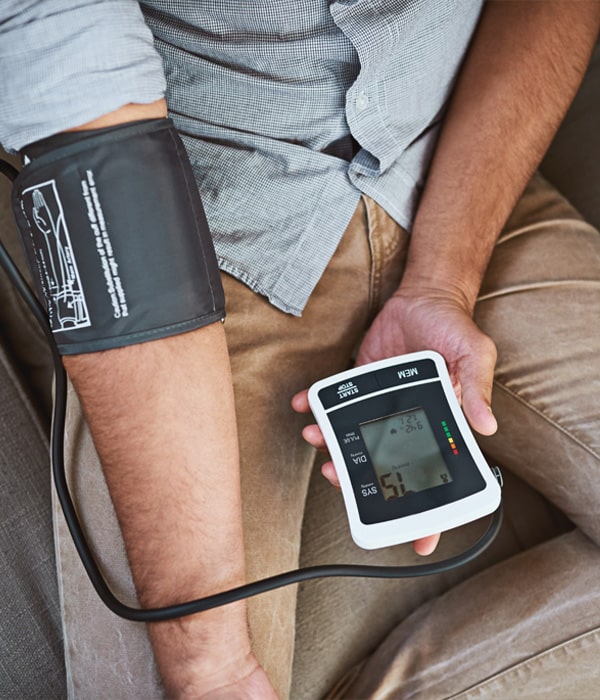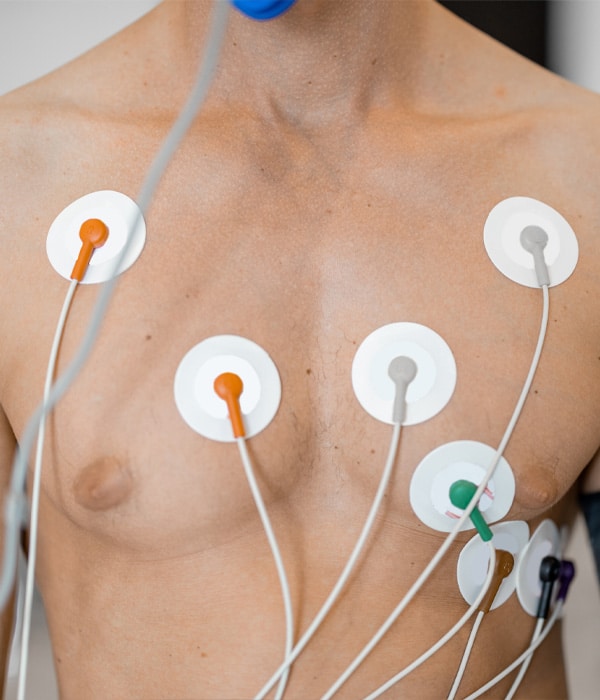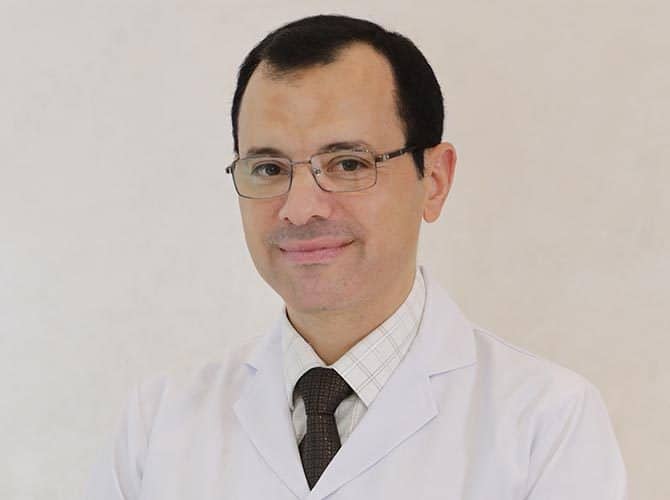Holter Monitor & 24-Hour Ambulatory BP Monitoring
Holter Monitor & 24-Hour Ambulatory BP Monitoring
Portable Devices That Track Heart Rhythm and Blood Pressure Over Time

At KidsHeart Medical Center, we use Holter Monitors and 24-Hour Ambulatory Blood Pressure Monitoring (ABPM) to detect heart rhythm disturbances and blood pressure variations that may not be captured during a routine clinic visit.
These compact, wearable devices offer a detailed view of your cardiovascular health in real-world settings, while you go about your daily routine.
We provide these services across Dubai, Abu Dhabi, and Al Ain, as part of our broader Adult Cardiology Services.

What is a Holter Monitor?
A Holter Monitor is a portable device that continuously records your heart’s electrical activity (ECG) over 24 to 72 hours.
It’s used to:
- Diagnose intermittent arrhythmias (e.g., skipped beats, palpitations)
- Evaluate causes of dizziness, fainting, or fatigue
- Monitor treatment response or medication effects
- Detect silent rhythm changes during sleep or activity
- Support long-term management in patients with implanted devices
This test is especially useful if your symptoms are brief and unpredictable.
What is 24-Hour Ambulatory Blood Pressure Monitoring (ABPM)?
ABPM is a test that records your blood pressure at regular intervals over a 24-hour period using a wearable cuff and monitor.
It helps identify:
- White coat hypertension — high BP only in clinical settings
- Masked hypertension — normal in clinic but elevated outside
- Night-time (nocturnal) hypertension
- Effectiveness of current blood pressure medications
- Risk of stroke, heart failure, or kidney disease due to blood pressure trends
ABPM gives a complete picture of how your blood pressure behaves during a typical day and night.
What to Expect During the Test
For Holter Monitoring:
- Electrodes are placed on your chest and connected to a small monitor worn around your waist or neck
- You’ll wear the device for 24 to 72 hours
- You will keep a diary noting any symptoms, activities, or discomfort
- Showering or swimming should be avoided while the device is on
- After monitoring, the data is analyzed by our cardiology team
For ABPM:
- A cuff is placed on your upper arm and attached to a small device worn on a strap or belt
- It inflates automatically every 15–30 minutes throughout the day and night
- You’ll be asked to maintain normal daily activities
- After 24 hours, the device is returned for data download and interpretation
Why Choose KidsHeart?
- Tests are prescribed and reviewed by specialist Adult Cardiologists
- Same-day setup with detailed instructions and support
- Fast turnaround on reports (within 1–2 working days)
- Results explained clearly, with treatment plans if needed
These tools help us diagnose what routine testing might miss — giving you answers based on actual, lived heart performance.




Capture the Full Picture of Your Heart and Blood Pressure
At KidsHeart, Holter and 24-Hour BP Monitoring allow us to see what’s happening when symptoms strike — not just during your appointment.
We proudly offer these services in Major Cities like Dubai, Abu Dhabi, and Al Ain.
Frequently Asked Questions (FAQs)
The devices are lightweight and well-tolerated. The BP cuff may cause mild pressure during inflation, especially at night.
Yes. Both Holter and ABPM devices are designed to be worn during normal activities. Just avoid getting them wet.
Note the time and activity in your symptom diary — it helps correlate symptoms with data.
Possibly. They are sometimes repeated to monitor changes or treatment effectiveness over time.
Reports are typically ready in 24–48 hours after device return, followed by a consultation with your cardiologist.
